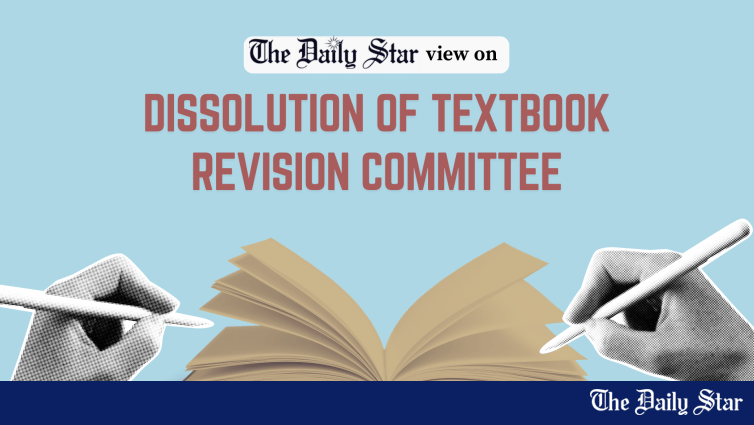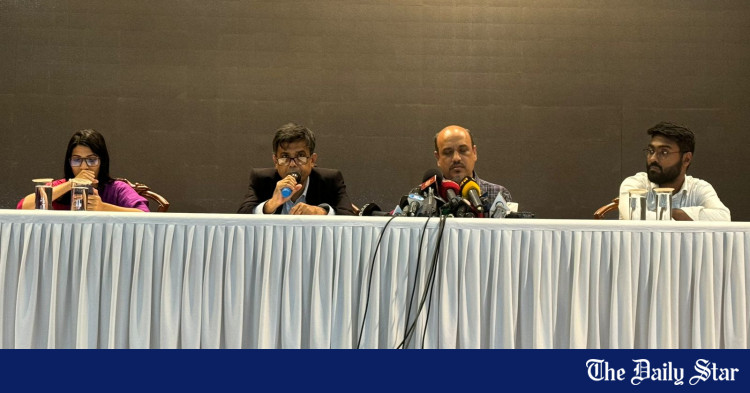Saif
Senior Member
- Messages
- 17,422
- Likes
- 8,377
- Nation

- Residence

- Axis Group

TDS: It seems the interim government is not adequately addressing the people's demands, and there is a perceived void, as political parties are claiming that this government has not provided a clear roadmap. How do you evaluate the situation?
FM: It's unjust to place the responsibility for creating a roadmap solely on the interim government. The initiative should come from the political parties themselves. Why are the political parties failing to put forward their own roadmap? It's contradictory to expect the interim government to provide a plan while leaving the task of reform to the political parties.
I've published seven critical articles on the BNP's proposals for state reform, which are available on my website. None of the BNP members have contested my views. If political parties refuse to listen to public feedback and dismiss criticism while demanding a roadmap from the government without offering their own, how can they claim to be a legitimate agency to lead the people? They need to outline their plans to the people, earn their trust, and secure their votes.
Furthermore, we still have bureaucrats who were involved in significant corruption and remain loyal to the Awami League. Why haven't we replaced them? What's stopping us from promoting capable young bureaucrats aged 30 to 32? If they are competent, why not consider them for senior positions like secretary?
TDS: How does the July movement stand to shape narratives related to the 1971 Liberation Movement?
FM: The independence movement of 1971 is a non-negotiable issue! It clearly and historically marks us as a political community different from Islamic Pakistan, and in 1947 we marked ourselves as different from Hindu India. I fundamentally reject the prevailing narrative about the events of 1971.
It's crucial to differentiate between independence and liberation. Liberation involves the creation of a politically empowered community, whereas independence merely signifies control over territory without fully realising statehood and its essential structures. Collective self-consciousness as the driving historical agency is not easy to achieve and realize. This is why I am so keen on literature, art, culture and the critique of theology and traditions. So I squarely place emphasis on the appropriate articulations between Bangla language, Bangla culture, pre-Islamic history and the religions. To progress, we must challenge the conventional Awami League (AL) narrative that 1971 was the culmination of our journey. No. It is only the beginning. We must integrate the golden history of Islam both in its place of origin and its arrival in the subcontinent and contribute to building powerful foundational imaginations and structures in our own language, and culture integrating the traditions and legacies we carry within us from pre-Islamic era. We must cultivate a critical, historical and creative mind that keeps us united and altered to our collective self-consciousness as the agent of world history, and not slaves of colonial, imperialist ideologies and power.
The intellectual shortcomings of the Awami narrative become apparent when we consider the constitution's adoption, which was driven more by the preferences of lawyers and bureaucrats than by the general will of the people formed by the collective self-consciousness as I discussed earlier. The Constitution is not a legal document, as naive lawyers usually think. To constitute is the most important political act through which a political community arrive to world history and contributes to the collective good of humanity and world history and planetary survival as a life form.
The core demands of the 1971 movement—equality, human dignity, and social justice—must now be actively pursued. Following the July uprising, Bangladesh has the chance to advance towards these goals. At this pivotal moment, we must address issues related to laws, culture, tradition, religion, and history to move forward effectively. Most importantly, we must learn to imagine ourselves as a unique political community and our existence is not negotiable.
The interview was taken by Shamsuddoza Sajen of The Daily Star.
FM: It's unjust to place the responsibility for creating a roadmap solely on the interim government. The initiative should come from the political parties themselves. Why are the political parties failing to put forward their own roadmap? It's contradictory to expect the interim government to provide a plan while leaving the task of reform to the political parties.
I've published seven critical articles on the BNP's proposals for state reform, which are available on my website. None of the BNP members have contested my views. If political parties refuse to listen to public feedback and dismiss criticism while demanding a roadmap from the government without offering their own, how can they claim to be a legitimate agency to lead the people? They need to outline their plans to the people, earn their trust, and secure their votes.
Furthermore, we still have bureaucrats who were involved in significant corruption and remain loyal to the Awami League. Why haven't we replaced them? What's stopping us from promoting capable young bureaucrats aged 30 to 32? If they are competent, why not consider them for senior positions like secretary?
TDS: How does the July movement stand to shape narratives related to the 1971 Liberation Movement?
FM: The independence movement of 1971 is a non-negotiable issue! It clearly and historically marks us as a political community different from Islamic Pakistan, and in 1947 we marked ourselves as different from Hindu India. I fundamentally reject the prevailing narrative about the events of 1971.
It's crucial to differentiate between independence and liberation. Liberation involves the creation of a politically empowered community, whereas independence merely signifies control over territory without fully realising statehood and its essential structures. Collective self-consciousness as the driving historical agency is not easy to achieve and realize. This is why I am so keen on literature, art, culture and the critique of theology and traditions. So I squarely place emphasis on the appropriate articulations between Bangla language, Bangla culture, pre-Islamic history and the religions. To progress, we must challenge the conventional Awami League (AL) narrative that 1971 was the culmination of our journey. No. It is only the beginning. We must integrate the golden history of Islam both in its place of origin and its arrival in the subcontinent and contribute to building powerful foundational imaginations and structures in our own language, and culture integrating the traditions and legacies we carry within us from pre-Islamic era. We must cultivate a critical, historical and creative mind that keeps us united and altered to our collective self-consciousness as the agent of world history, and not slaves of colonial, imperialist ideologies and power.
The intellectual shortcomings of the Awami narrative become apparent when we consider the constitution's adoption, which was driven more by the preferences of lawyers and bureaucrats than by the general will of the people formed by the collective self-consciousness as I discussed earlier. The Constitution is not a legal document, as naive lawyers usually think. To constitute is the most important political act through which a political community arrive to world history and contributes to the collective good of humanity and world history and planetary survival as a life form.
The core demands of the 1971 movement—equality, human dignity, and social justice—must now be actively pursued. Following the July uprising, Bangladesh has the chance to advance towards these goals. At this pivotal moment, we must address issues related to laws, culture, tradition, religion, and history to move forward effectively. Most importantly, we must learn to imagine ourselves as a unique political community and our existence is not negotiable.
The interview was taken by Shamsuddoza Sajen of The Daily Star.








